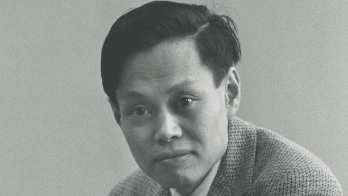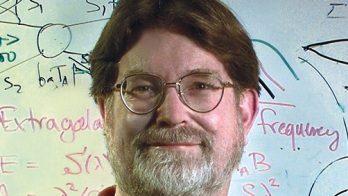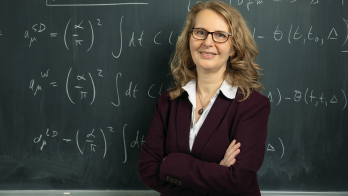
Experimental particle physicist Max Klein, whose exceptional career spanned theory, detectors, accelerators and data analysis, passed away on 23 August 2024.
Born in Berlin in 1951, Max earned his diploma in physics in 1973 from Humboldt University of Berlin (HUB, East-Germany, GDR) with a thesis on low-energy heavy-ion physics. He received his PhD in 1977 from the Institute for High Energy Physics (IHEP) of the Academy of Sciences of the GDR in Zeuthen (now part of DESY) on the subject of multiparticle production, and his habilitation degree in 1984 from HUB. From 1973 to 1991 he conducted research at IHEP Zeuthen, spending several years from 1977 at the Joint Institute for Nuclear Research in Dubna, and from the 1980s at DESY and CERN. For his role in determining the asymmetry of the interaction of polarised positive and negative muons with the NA4 muon spectrometer at CERN’s SPS M2 muon beam, he was awarded the Max von Laue Medal by the Academy of Sciences of the GDR in 1985.
Max worked as a scientist at DESY from 1992 to 2006. As a member of the H1 experiment at the lepton–proton collider HERA since 1985, his research focused on investigating the internal structure of protons using deep inelastic scattering. He served as spokesperson of the H1 collaboration from 2002 to 2006 for two mandates.
Max became a professor at the University of Liverpool in 2006, and the following year he joined the ATLAS collaboration. He served as chair of the ATLAS publication committee and as editorial-board chair of the ATLAS detector paper and other important works. Max made key contributions to data analysis, notably on the high-precision 7 TeV inclusive W and Z boson production cross sections and associated properties, and was a convener of the PDF forum in 2015–2016. From 2017 to 2019, Max was chair of the ATLAS collaboration board, during which he made invaluable contributions to the experiment and collaboration life. He led the Liverpool ATLAS team from 2009 to 2017. Under his guidance, the 30-strong group contributed to the maintenance of the SCT detector, as well as to ATLAS data preparation and physics analyses. The group also developed hybrids, mechanics and software for the new ITk pixel and strip detectors.
In recent years, Max’s scientific contributions extended well beyond ATLAS. He was a strong advocate for the development of an electron-beam upgrade of the LHC, the LHeC, and collaborated closely with the CERN accelerator group and international teams on the development of energy-recovery linacs. Here, he was influential in the development of the PERLE demonstrator accelerator at IJCLab, for which he acted as spokesperson until 2023.
A strong advocate for the responsibility of scientists toward their societies
In 2013 Max was awarded the Max Born Prize by the Deutsche Physikalische Gesellschaft and the UK Institute of Physics for his fundamental experimental contributions to the elucidation of the proton structure using deep-inelastic scattering. The prize citation stands as a testament to his scientific stature: “In the last 40 years, Max Klein has dedicated himself to the study of the innermost structure of the proton. In the 1990s he was a leading figure in the discovery that gluons form a surprisingly large component of proton structure. These gluons play an important role in the production of Higgs bosons in proton–proton collisions for which experiments at CERN have recently found promising candidates.”
Besides being a distinguished scientist, Max was a man of unwavering principles, grounded in his selfless interactions with others and his deep sense of humanity. Drawing from his experience as a bridge between East and West, he was a strong advocate for international scientific collaboration and the responsibility of scientists toward their societies. He had a strong desire and ability to mentor and support students, postdocs and early-career researchers, and an admirably wise and calm approach to problem solving.
Max Klein had a profound knowledge of physics and a tireless dedication to ATLAS and to experimental particle physics in general. His passing is a profound loss for the entire community, but his legacy will endure.







